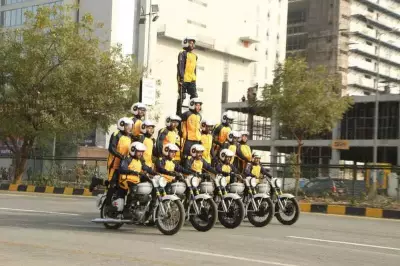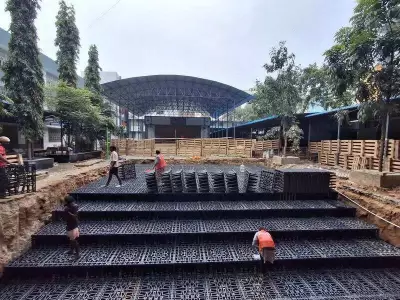
In a bizarre twist to a major terrorism investigation, a religious preacher from Haryana arrested for allegedly storing massive quantities of explosive materials surprised interrogators by showing more concern about recovering unpaid rent than facing serious terror charges.
The Shocking Rent Demand During Terror Interrogation
Maulvi Ishtiyaq, a preacher from Mewat in Haryana, was detained by Jammu and Kashmir Police for his alleged involvement in a white-collar terror module linked to banned organizations Jaish-e-Mohammed (JeM) and Ansar Ghazwat-ul-Hind. The module was first uncovered on November 10, just hours before a car bomb explosion near Delhi's Red Fort that killed 15 people and injured many others.
During interrogation, investigators discovered that Ishtiyaq had stored approximately 2,500 kg of explosive material, including ammonium nitrate, potassium chlorate, and sulphur, at his rented residence near Faridabad's Al Falah University. This location has now emerged as the operational epicenter of the terror network.
How the Terror Network Unraveled
The investigation began on the night of October 18-19 after banned JeM posters threatening attacks on police and security forces appeared outside Srinagar city. This led police to Al Falah University, where they discovered 2,900 kg of explosives stored nearby.
Police arrested three individuals - Arif Nisar Dar (alias Sahil), Yasir-ul-Ashraf, and Maqsood Ahmad Dar (alias Shahid) - after CCTV footage captured them pasting the posters. Their interrogation led to the arrest of former paramedic turned-preacher Maulvi Irfan, who allegedly supplied the posters.
The probe eventually resulted in eight arrests, including three doctors. One of them, Dr Umar-un-Nabi, evaded arrest and was later identified as the driver of the explosive-laden car that detonated outside the Red Fort on November 10.
The Preacher's Unexpected Priority
Ishtiyaq's name emerged during the interrogation of Dr Muzammil Ganaie, identified as a key member of the terror module. Ishtiyaq was arrested from the university premises, after which police traced the explosives to his residence.
However, the preacher presented a startlingly different narrative to his interrogators. He claimed that Ganaie and Umar had approached him earlier this year, asking him to store what they described as fertilizers for a monthly storage fee of ₹2,500.
Living below the poverty line and struggling to support his four children and family, Ishtiyaq's immediate and desperate demand to officials was to recover the outstanding six months' rent owed by Ganaie and Umar so he could send money back home.
Police officials described the bizarre disparity between the heinous nature of the crime - storing enough material for a massive terror attack - and the detainee's single-minded concern for his rent. The unusual plea reportedly broke the tension briefly in the interrogation room.
Ganaie corroborated Ishtiyaq's story during the probe, after which the preacher was handed over to the State Investigation Agency (SIA) for further action. A senior police official noted that the incident provides a bizarre and tragicomic look into the lives entangled on the fringes of major terror plots.





